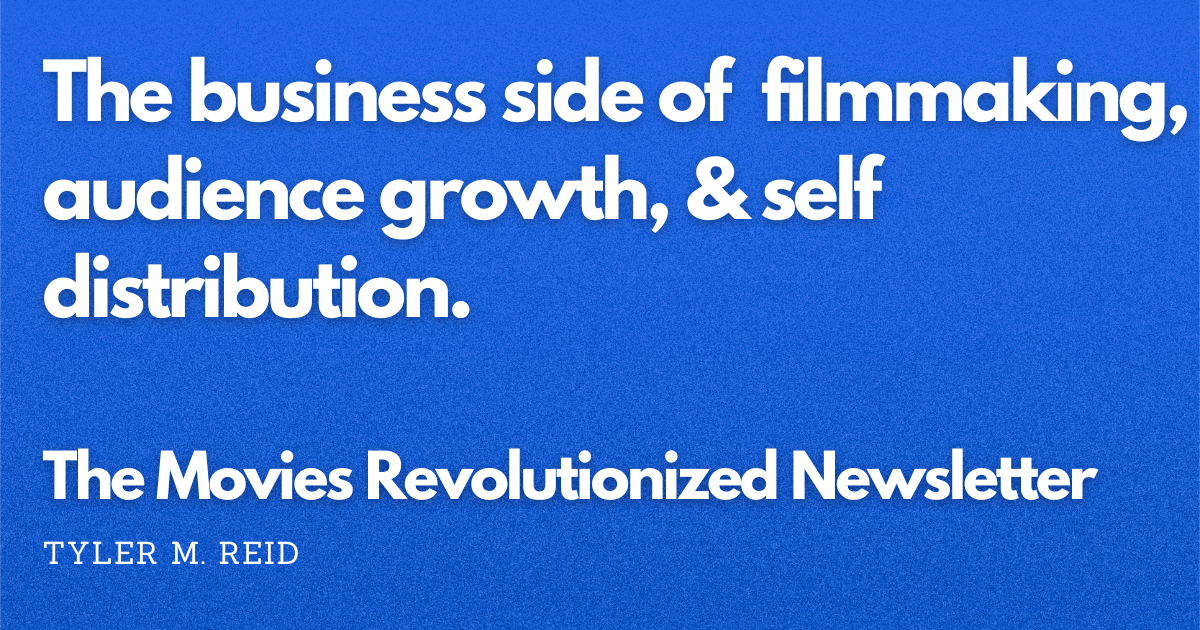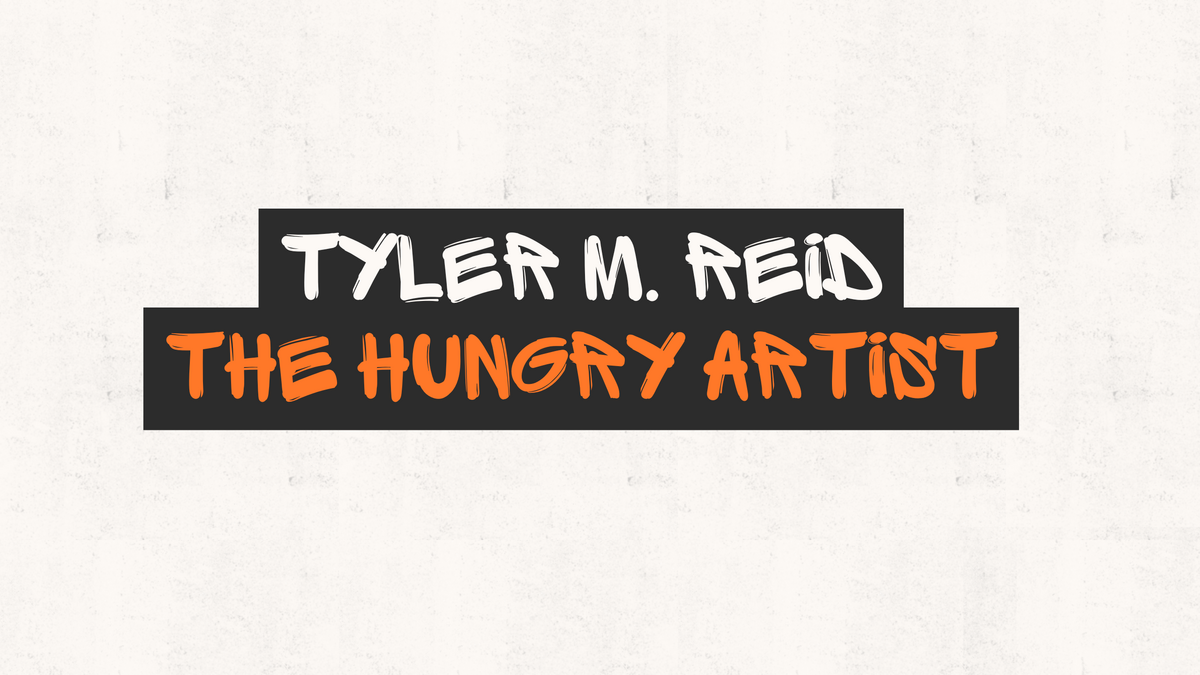Your Film is a Business - Treat It Like One
The moment you begin to see and treat your film like a business, the moment sponsors, investors, and others will see it the same way.
Every time you embark on a new film project, it’s like launching a fresh business venture from the ground up. Your film starts as an idea, blossoms into a product, and eventually, it’s something that people want to buy.
The challenge, however, is finding the right investors to help turn your creative vision into reality. It’s not uncommon for indie filmmakers to look for “film investors” - when instead you should look for investors who would find it interest to invest in film.
With over 25 million millionaires in the United States alone, each one is a potential investor for your film.
But how do you tap into this vast network of resources? The answer lies in building genuine relationships and understanding the business side of filmmaking.

Start with Local Investors
The first step is to start local. Local investors have a vested interest in your success, simply because they’re part of your community. They’re more likely to trust you, and that trust can be the deciding factor in whether they choose to invest in your film.
Meeting face-to-face, having conversations over coffee, or even inviting them to set can build a level of comfort that’s hard to achieve with distant investors.
How Do You Find Local Investors?
A little research goes a long way. Even the simplest approaches can yield a solid list of potential investors. Start by looking up the owners of top real estate in your city.
Who owns those million-dollar houses?
Next, check out the local franchises. Does someone local own the McDonald’s or Subway franchise?
Also, identify other successful local businesses. Who’s behind them?
Don’t forget to tap into your own network. Ask around—does anyone know someone who fits into these categories? Once you have some names, your next task is to find their email addresses and phone numbers. Since they’re local, try getting them on the phone for a quick chat. Offer to buy them a cup of coffee and suggest a brief 15-minute conversation. By keeping the chat window small, you show you respect their time.
Why Local Matters
Finding local investors offers several significant advantages. First, by focusing locally, you have a better shot at identifying individuals with the means to invest. Second, you provide them the unique opportunity to be part of the filmmaking process. This doesn’t mean giving them control over your project, but it does mean they can visit the set during production, drop by the editing suite in post-production, and even attend a local premiere.
Being local builds a sense of trust and security. By doing your research and reaching out personally, you’ve already demonstrated your capability to tackle unique challenges. Meeting face-to-face and knowing that their money will be spent in their own city further solidifies their confidence in you and your project.
Other Networking Ideas
If you feel like you are struggling with finding investors locally, look around in your city or state or even a close by neighboring state for events that are likely to have entrepreneurs, business owners, investors, et cetera, as guests.
Your goal in essence is to find NEW film investors. Look at real estate, business, or other commerce industry events, and local business meetups. These are the places where potential investors gather, and they’re always looking for the next big opportunity. Entrepreneurs, real estate investors, and even tech moguls are often interested in diversifying their portfolios with creative investments like films. It is not uncommon to find a good handful at industry events.
These are the kinds of events you most likely wouldn’t find a filmmaker looking for investors. Whereas a film festival or film events, you’ll find hundreds of filmmakers going after the same investors, the same companies, the same money.
Pitching Your Film as a Business
When pitching your film, remember that you’re not just selling a creative idea—you’re selling a business opportunity. Millionaires didn’t become successful by taking unnecessary risks. They need to see a solid business plan, one that details not just how much money you need, but how their investment will be used, and most importantly, how it generate returns.
Your business plan should include a comprehensive budget, a detailed marketing strategy, and a clear path to profitability. Show them you’ve thought through every aspect of the project. Investors need to know that their money is in capable hands and that there’s a well-thought-out plan for success.
You need to start with the things that investors care about most.
How much of their money do you need?
How will their money be spent?
How do you go about potentially trying to make an ROI on their money?
The film business plan will layout how you will think about your movie like a business.
How much money is needed?
How will that money be allocated to the different areas to make the film? Also known as the budget.
How will you market and advertise that film?
How will people consume that film? In a theatre? On streaming? On YouTube?
Who are the creative and logistical heads running the film? Director, Producer, DP, HOD, et cetera.
How much money will the investor potentially get back? Is it pro rata return, or fixed return, or a variation?
This is the important business part of the film business. This is the stuff investors care about most. They of course may very much care about the creative, but they will care how you are thinking of the film in terms of a business especially if you are asking for their money to make the film happen.
Start With Small Investments
I understand you may be eager to make your first film for $1,000,000. However, that is a huge risk on your part and your investors part if it is the first time you are making a feature film.
Look at how you can make your film between $100,000 - $300,000. Then look if you can find 10-20 individual investors to invest only $5,000 - $15,0000 each. Now you are mitigating their risk, because you aren’t asking for a lot. You are also mitigating your risk of using too much investor funds for your first film.
Film Investors are Last not First!
Private investors should be the last route you take. Can you raise money through crowdfunding, local sponsors, in kind services, and even donations? Get as much money as you can through these routes before you choose the route where you have signed a contract to try to pay your investor back plus interest.
Securing investors for your film is about more than just having a great idea. It’s about building trust, presenting a solid business case, and understanding the legalities of investment. With these strategies, you’re not just asking for money—you’re offering a unique opportunity to be part of something amazing.
Remember, every film is a new business, and with the right approach, you can find the investors who will believe in your vision just as much as you do.
There are two ways I can help you.
I give away a free bundle with example pitches, templates, and interactive budgets that you can grab right here.
If you are on your journey to make your first short film, documentary, or even micro budget feature, this course is designed to help you find money, grow your audience, and earn an income.


